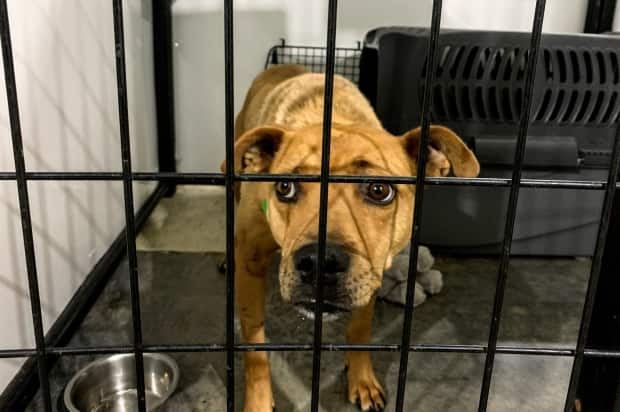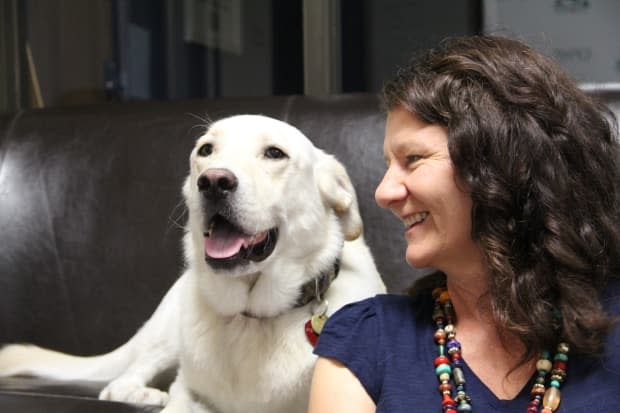Some animal rescues warn pet surrenders are rising as pre-pandemic life returns

For Amanda McClughan, it feels like the phone at Saving Grace Animal Society never stops ringing.
Though the rush on puppy adoptions during the pandemic has slowed, the animal rescue in the small village of Alix, Alta., still gets lots of calls from people hoping to adopt animals they have in their care.
But in recent weeks, there's been an increasing number of queries to see if their facility can take in cats and dogs that owners can't care for anymore.

Pandemic may be a factor in surrenders
McClughan, the society's development director, said it's not that people have tired of their pandemic puppies and are returning them, but she says it does seem like the pandemic is a factor for many people who are giving up their animals.
"Maybe they're getting new jobs. Maybe they're vacationing so they don't have the funds," McClughan said.
WATCH | Some animal shelters warn pet surrenders are increasing:
"I just think that people are trying to get back to the normal of life and maybe, in that, the animals are kind of slipping to the side a little bit."
Saving Grace isn't the only group watching with alarm as intakes rise.
Animal rescue organizations in Edmonton, Fort McMurray, Alta., and Sudbury, Ont., have all told CBC they're worried about the number of surrender requests that are coming in.
In Toronto, there's been a surge in abandoned rabbits, according to Haviva Porter, founder of Rabbit Rescue Inc.
She said her charity is having its busiest year ever in two decades of operation, and in the last month, she's seen a huge increase in owners surrendering rabbits.

"We're only part way through July and we've already taken in more rabbits than April, May and June combined."
With rescues currently overwhelmed and rabbits with nowhere to go facing euthanasia, Porter said she hopes people looking to give up their bunnies can hold out a while longer.
Preparing pets for post-pandemic transition
Despite these reports, the head of Humane Canada, which represents humane societies, SPCAs and animal rescue organizations across the country, says they aren't seeing any notable difference in surrenders among their members.
"In fact, in some cases, we're seeing surrenders going down," said CEO Barbara Cartwright.
When surrenders happen, she said it's because people are in a crisis — not because they've lost interest in their pet.
She said the pandemic is a factor because it can push people into financial struggles and positions where they can't care for their pets.

As many Canadians prepare to head back to offices and schools in the fall, Cartwright said her organization is focused on setting owners and pets up for a successful transition.
She recommends pet owners prepare by:
Making sure pets have toys and treats to keep them entertained and engaged during the day;
Hiring a pet walker if the pet is alone indoors for long periods of time;
Keeping an eye out for signs of pet anxiety, and seeing a veterinarian if an animal isn't coping well.
For pet owners feeling overwhelmed or financially strapped, Cartwright suggests reaching out to local animal rescue organizations for help.
She said they can point pet owners who are struggling to resources like pet food banks that can help them make it through and keep their animals.
"As you can imagine, surrendering your pet is a horrible, horrible feeling and something we want to do is keep the families together," she said.

